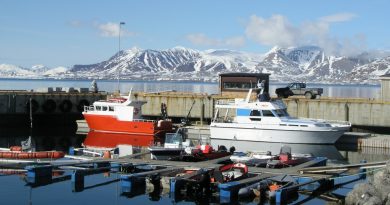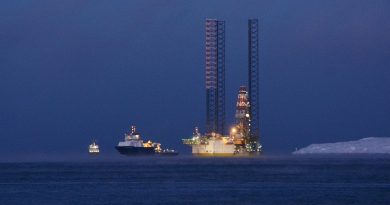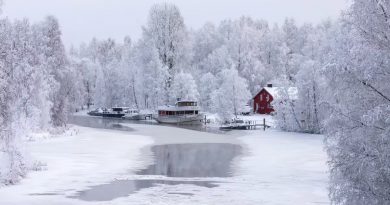Fort Simpson ‘warmer than Toronto’ for days as heat wave hits southern N.W.T.

Environment Canada says temperatures expecting to cool in the next few days
Much of the South Slave and Dehcho regions are experiencing high temperatures, as a cold winter gives way to a hot spring.
Dave Phillips, a senior climatologist with Environment and Climate Change Canada, said Fort Simpson has been “warmer than Toronto” for the last two weeks.
“It’s certainly unseasonably warm,” Phillips said.
Phillips said the warm temperatures are coming from a low-pressure system from the south, which is being pushed into the N.W.T.
In the South Slave, Fort Smith was expected to reach 31 C on Thursday. According to Environment and Climate Change Canada, there have also been heat warning in Fort Chipewyan since Monday, setting a record of 32.2 C.
Fort Smith resident Don Bourque says he plans to stay inside.
“It’ll be too hot for me to even go outside,” Bourque said. “I got lots of work to do outside my house but it’s too much heat. I can’t compete with that.”

He also said the summer is expected to be “warmer than normal” across the territory, and the country.
Adam McNab, Fort Smith’s director of protective services, said extreme heat and dry conditions increase wildfire risk.
“Any fire on the landscape has the potential to spread,” McNab said.
Right now, the town of Fort Smith has a full fire ban in place.
“The wind is also making it very extreme fire weather, as far as heat, definitely try and find a cool place in your home,” McNab said.
“Make sure that your curtains are drawn. Stay cool and stay hydrated,” he added.
He also said despite all the areas that burned in the 2023 fire season, fire risk around Fort Smith remains high.
He said residents need to exercise heightened awareness and caution.
Fire danger was high to extreme across the Dehcho and South Slave regions on Thursday. Environment Canada expects cooler temperatures later this week.
With files from Carla Ulrich and Hilary Bird
Related stories from around the North:
Canada: Arctic glaciers remain at risk even if int’l community reaches climate targets: study, CBC News
Norway: Svalbard glacier once survived a warmer climate, The Independent Barents Observer
Russia: Melting permafrost may release industrial pollutants at Arctic sites: study, Eye on the Arctic
United States: Trump’s cuts threaten US polar science after decades of data collection, Blog by Mia Bennett



